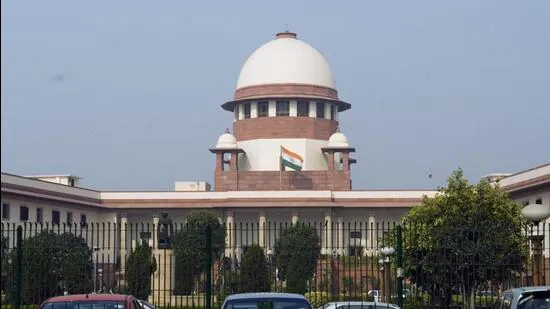Prayers inculcating moral values not confined to a religion: supreme court
The Supreme Court said this in response to a plea challenging the Centre’s December 2012 order making recital of Sanskrit shlokas mandatory during morning assemblies at Kendriya Vidyalayas

Prayers inculcating moral values are not confined to any religion, the Supreme Court said on Wednesday while hearing a plea challenging the Centre’s December 2012 order making recital of Sanskrit shlokas mandatory during morning assemblies at Kendriya Vidyalayas.
A bench of justices Indira Banerjee, Surya Kant, and MM Sundresh said such recitals are meant to inculcate moral values. “Values inculcated in school we still carry. This basic education is so important.”
Advocate Veenayak Shah moved the Court with the plea in 2017. A two-judge bench in January 2019 referred the matter to the larger bench saying the petition raises questions of seminal importance citing the Constitution’s Article 28(1), which says no religious instruction shall be provided in any state-funded educational institution.
Senior advocate Colin Gonsalves, who appeared for Shah, said it is a specific prayer about a specific community. “But the principles which the court has expressed are more profound.” Gonsalves said being a born Christian and a practising Hindu, his daughter is Hindu and the prayer “asatoma sad gamaya” is recited among other prayers at home.
He referred to Shah’s apprehensions and added parents, children of the minority communities, atheists and others, who do not agree with this system of prayer, such as agnostics, sceptics, rationalists and others would find the imposition of the prayer constitutionally impermissible.
When the matter was heard in 2019, the Centre argued nobody could object to the use of Sanskrit shlokas as they proclaim a “universal truth”. It said the Supreme Court emblem is inscribed with “yato dharmastato jayah (where there is dharma, there is victory)” and added these words have been taken from Upanishads and find reference in Mahabharata.
The Centre said merely because they are contained in Mahabharata does not mean that the Supreme Court is religious.
Muslim organisation Jamiat Ulama-i-Hind also filed an intervention application in the matter saying the recitation of the prayer was based on a particular religion and violative of the Constitution.
Sandeep Raiza — Content Writer, Website Designer, SEO Strategist, and WordPress Expert AI specialist delivering impactful digital solutions that drive business growth.Combining creative storytelling with technical expertise.
